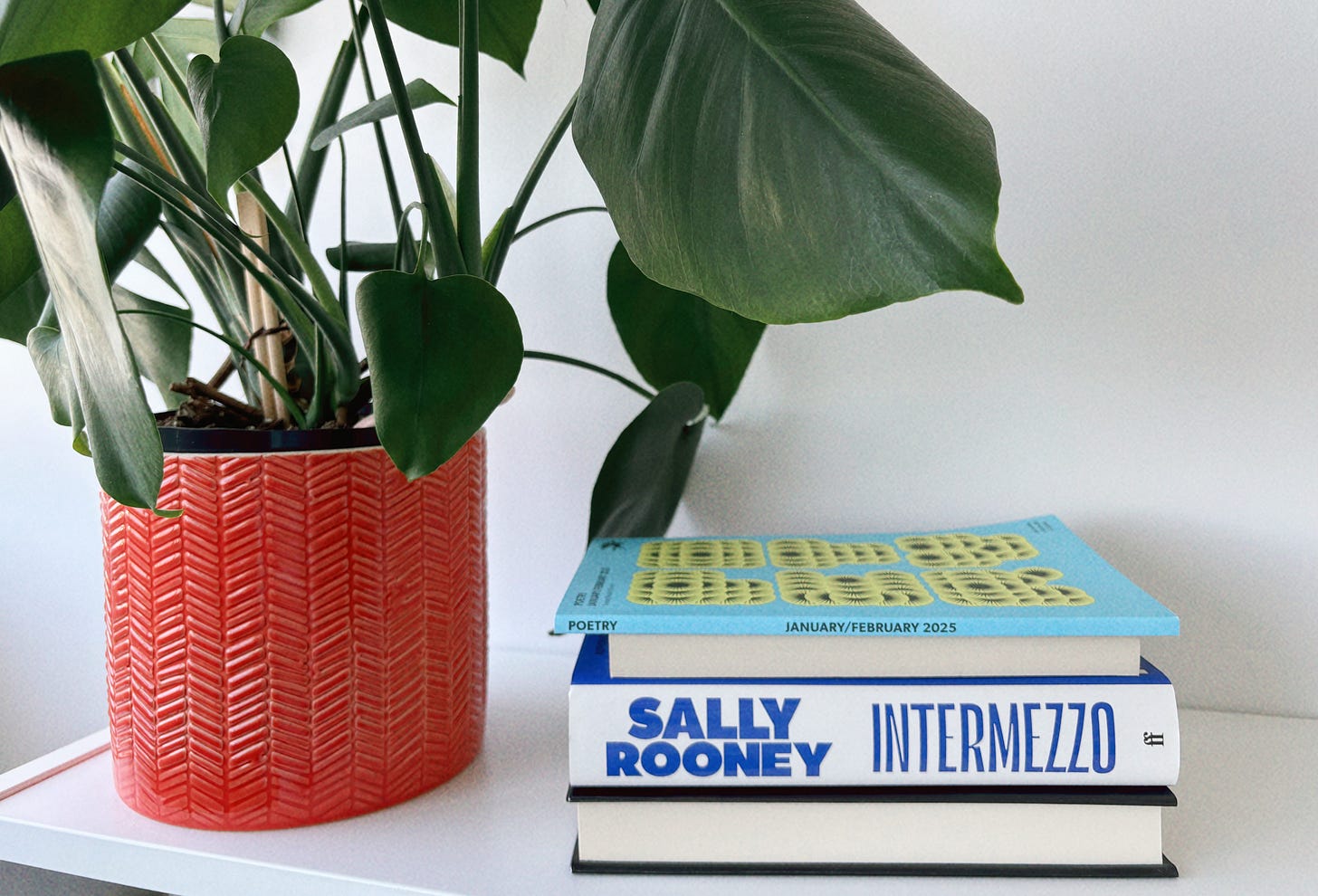Hello!
Books
Carrion Crow, by Heather Parry
Look, I know it’s early, but I’m calling it now — book of the year.
An incredible second novel from Heather Parry, following 2022's excellent ORPHEUS BUILDS A GIRL, CARRION CROW perfectly captures the Victorian Gothic, with poor Marguerite going mad in the attic. Holed up by her mother, with just a crow and Mrs. Beeton's Book of Household Management for company, Marguerite is patiently waiting for Cecile to decide that her daughter is adequately prepared for her upcoming marriage to Mr Lewis, a kind and fine-tempered lawyer, many years Marguerite’s senior. Cecile, however, is hoping to permanently postpose a marriage she fears will bring the downfall of her family’s hard-earned reputation, as Mr Lewis is neither wealthy nor well-standing. As the days turn into weeks turn into months, Marguerite’s physical and mental health begin to fray.
I keep thinking of Marguerite - obedient, hoping to prove herself - in the attic, letters stuffed into the floorboards, the roof beams crumbling around her, her hair getting longer and wilder as time passes.
Much like in ORPHEUS BUILDS A GIRL, and in Parry’s short story collection, THIS IS MY BODY, GIVEN FOR YOU, the writing truly puts the horrific in body horror, but Parry’s skill lies in somehow ensuring that despite being literally disgusting, her characters remain apart from their viscerality (is that a word?), firmly deserving of empathy.
Perfect perfect perfect; she’s done it again. (Also, if you’re not reading , you ought to be.)
Intermezzo, by Sally Rooney
You’re not seeing things if you’re thinking INTERMEZZO was on the October list - I re-started it having put it down because life (and I think also because nothing puts me off a book faster than HYPE, and it was inescapable). On its second attempt, though, I loved it.
A blurb in case you’ve somehow missed it - Rooney’s fourth novel centres around the relationship between two brothers: Peter, a lawyer in his early thirties, and Ivan, ten years younger and a chess genius. Their father has recently died, and the brothers are attempting to rebuild a relationship, of sorts. Both are in unconventional relationships, one which the other disapproves of, and one which the other barely knows about.
As always, Rooney’s writing of misunderstandings and miscommunications is excellent, and it’s this which carries the novel through, in place of any real “plot”. It’s a beautiful novel on grief and regret, and on how vulnerability is a learned skill, rather than a natural inclination. I’ve seen some criticism of the train of thought style narration, but I loved it and I think it worked perfectly to capture (especially Peter’s) changing moods.
I re-watched NORMAL PEOPLE just before I reread this, and I’m going to reread BEAUTIFUL WORLD WHERE ARE YOU because I’m not ready to be out of the Rooneyverse again just yet. Bonus point for Alexei, the best dog in modern literature.
Mina’s Matchbox, by Yoko Ogawa (translated by Stephen B. Snyder)
I didn’t realise that this was almost twenty years old, having been originally published in Japanese in 2005 and not translated into English until 2024. (Side note: I vaguely remembered when I read THE MEMORY POLICE a few years ago that it had been published in 1994, but it seems wild that a multi-award winning novelist, with 40 books under her belt, is taking TWENTY YEARS to be translated into English.)
Anyway, MINA’S MATCHBOX is set in 1972, capturing teenager Tomoko’s first year of living in Ashiya with her aunt and uncle, her cousin Mina, and Pochiko, their pygmy hippo. With short, disconnected chapters (the novel was serialised when it was first published, so that makes sense), it is very much vibes over plot, but all of the vibes are… kind of subdued. 1972 is supposed to be a formative year for Tomoko: the year that cemented who she is as a person, how she sees the world, how her eyes were opened by Mina and her stories and her huge house-that-used-to-be-a-zoo, but honestly, it’s kind of hard to see why, unless Tomoko’s adult life has nothing more exciting going for it than a tour of a soft drink factory.
Online reads
I *think* recommended Jen Calleja’s essay for the London Magazine - Evading Capture: On Writing Two Experimental Memoirs - and it’s unsurprisingly excellent.
I’m not going to link it, but I read the Neil Gaiman piece and god it’s grim.
wrote about her new years resolution to read less, for
I loved ’s 2024 reading roundup post - maybe the most diverse reading list I’ve seen of this year’s roundups.
2025’s public domain is getting some goodies, and I am here for almost every one of LitHub’s suggestions.
I’ve loved reading so many reading resolutions this month, and I’d love to know yours. My controversial reading resolution for 2025 is to read some more dead white men (lol), because I feel a bit like I’ve got myself into a weird-lit-girl bubble, which is fine, but I want to read some books that have never heard of covid or tiktok. Recommend me your favourites.
Terri-Jane x







